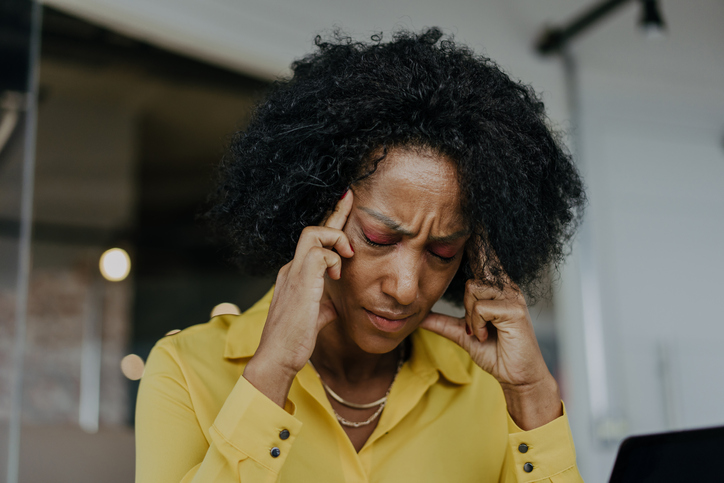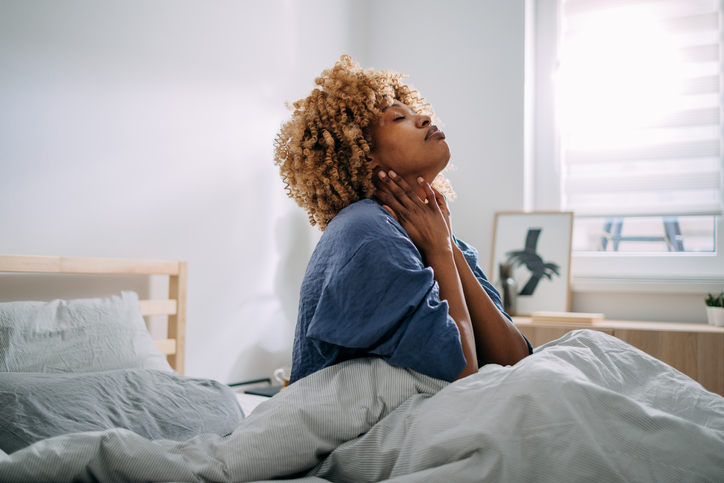
Source: andreswd / Getty
Black women not only begin menopause earlier than white women, but they also experience more severe symptoms.
The findings come from a 25-year assessment performed by the Study of Women’s Health Across the Nation (SWAN). The implications go far beyond moderate to severe menopausal discomfort. The research suggests that structural racism could be the impetus for the ways in which they experience menopause differently.
The Findings On Menopause Symptoms In Black Women

Source: miniseries / Getty
According to SWAN, Black women begin menopause an average of 8.5 months earlier than white women. It also found that Black women are more likely to experience hot flashes, significant depressive symptoms and sleep disturbances during “the change.” Also added to the list of shitty things Black women endure is being more likely to report severe limitations physically. Taking hormone replacement therapy, or not, had no bearing on the results. In essence, we’re doomed from the womb to the tomb.
And although queens report symptoms that make them most likely to meet the criteria for preventative intervention, research revealed that unlike their white counterparts- access denied.
The Real-World Implications Of These Findings

Source: gorodenkoff / Getty
Menopause symptoms can disrupt a woman’s everyday activities, including her professional responsibilities. However, for Black women, this disadvantage comes at a greater cost.
Research has found that Black women over the age of 45 are some of the most disadvantaged members of the workforce. They are the least likely to get promoted, most likely to feel uncomfortable advocating for themselves in the workplace, and most likely to not feel respected by their peers. Older queens approaching menopause age already struggle to earn the recognition and opportunities more readily available to white women. That struggle becomes amplified once they begin trying to manage menopause symptoms.
Depression and sleep problems can both negatively affect a person’s moods and disposition. And Black women experience these symptoms at a higher rate than white women. And that can have workplace implications. But wait- it gets worse. Black women also already face the reality of stereotyping and racial bias in the workplace. One study found that, when Black women show anger in the workplace, people are prone to attributing it to their personality instead of recognizing that sisters already faced an unfair amount of pressure to manage emotions in the workplace. Add menopause to the game, and it’s a wrap. Managing moods and emotions, while dealing with insomnia, depression and hot flashes- it’s a Molotov cocktail of fuckery.
Taking time off work when symptoms get severe could be a solution, but it’s often not an option. Research shows that over a third of Black women do not get paid sick days, leaving many having to choose between earning a living and caring for themselves.
Systemic racism is not only making menopause symptoms worse for Black women, but those resulting symptoms are triggering a heightened experience of bias and racism. It’s a never-ending cycle. Medical professionals and employers should take note of these important findings when implementing new policies in caring for queens as patients and employees.









